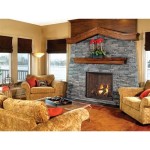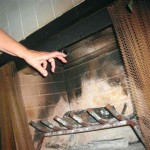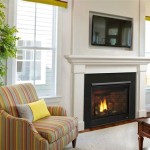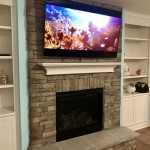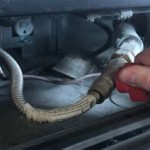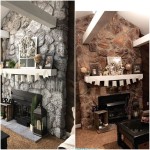New Gas Fireplace Smells: Understanding and Addressing the Issue
The installation of a new gas fireplace brings the promise of warmth, ambiance, and energy efficiency to a home. However, a common initial experience for many homeowners is the presence of an unusual odor emanating from the unit. This “new gas fireplace smell” is often a cause for concern, prompting questions about its source, potential dangers, and necessary steps for mitigation. A thorough understanding of the potential sources of this odor, coupled with appropriate troubleshooting techniques, can alleviate concerns and ensure the safe and enjoyable operation of the fireplace.
The smell associated with a new gas fireplace can vary in intensity and precise character. Some describe it as a burning smell, similar to that of heated metal, while others liken it to the odor of chemicals or even a plastic-like scent. These perceptions are subjective and dependent on the individual's sensitivity to different volatile organic compounds (VOCs) and the specific materials used in the fireplace's construction. It is important to distinguish between a temporary "new fireplace smell" and a persistent or unusual odor that may indicate a more serious problem, such as a gas leak, which requires immediate attention and professional intervention.
Identifying Common Sources of the Initial Odor
The odor associated with a new gas fireplace typically arises from the off-gassing of various materials used during the manufacturing and installation process. Several contributing factors can contribute to this initial smell:
Manufacturing Residue: During the manufacturing process, components of the fireplace, such as the metal firebox, burner assembly, and ceramic logs, may be coated with oils, lubricants, or protective coatings to prevent corrosion or facilitate assembly. These substances are designed to withstand normal storage and transportation conditions. Upon initial operation of the fireplace, these coatings are exposed to high temperatures, causing them to evaporate and release odors. The burning off of these residues is a normal and temporary process.
Paint and Finishes: The fireplace enclosure and surrounding trim often incorporate painted or finished surfaces. These paints and finishes contain solvents and other VOCs that can be released when heated. The intensity of the odor depends on the type of paint used, its application thickness, and the ventilation of the area surrounding the fireplace. Higher-quality, low-VOC paints tend to produce less odor, but even these can still release some smell during the initial burn.
Ceramic Logs and Decorative Materials: Many gas fireplaces feature ceramic logs designed to mimic the appearance of natural wood. These logs, along with other decorative materials like glass beads or rock wool, can release odors when first heated. The specific composition of the ceramic or glass, as well as any binders or adhesives used in their manufacturing, influences the type and intensity of the odor produced. New ceramic logs may have a distinct, somewhat chemical-like smell that diminishes with use.
Installation Materials: The materials used during the installation process, such as sealants, adhesives, or pipe joint compounds, can also contribute to the initial odor. These substances may contain volatile components that evaporate when exposed to heat from the fireplace. The smell is often strongest during the first few uses of the fireplace, as these materials fully cure and release their VOCs.
Dust and Debris: Even with careful installation, some dust and debris from the construction process may settle inside the fireplace unit or on the burner assembly. When the fireplace is ignited, this dust can burn off, creating a smoky or acrid smell. Regular cleaning of the fireplace unit, particularly before the first use, can help to minimize this issue.
Distinguishing Between Normal Odors and Potential Problems
While the "new fireplace smell" is generally harmless and temporary, it is essential to differentiate it from odors that may indicate a more serious underlying problem. Recognizing the characteristics of each type of smell allows homeowners to take appropriate action, ensuring the safety and proper functioning of the fireplace.
Normal "New Fireplace Smell": This odor is typically characterized as a burning smell, similar to heated metal or plastic. It may also have a chemical-like undertone, depending on the specific materials used in the fireplace's construction. The smell is usually strongest during the first few uses of the fireplace and gradually diminishes over time, typically within a few days or weeks of regular operation. Proper ventilation of the area surrounding the fireplace can help to dissipate the odor more quickly. If the smell diminishes with each subsequent use, it is likely the normal "burn-off" odor.
Gas Leak Odor: A gas leak is a serious safety hazard and requires immediate attention. The odor of natural gas is often described as a sulfur-like or rotten egg smell. This is due to the addition of a chemical called mercaptan, which is intentionally added to natural gas to make it detectable. If a gas leak is suspected, immediately evacuate the premises and contact the gas company or a qualified HVAC technician. Do not attempt to locate the source of the leak or operate any electrical devices, as this could ignite the gas.
Electrical Burning Smell: An electrical burning smell often indicates a problem with the fireplace's wiring or electrical components. This smell may be accompanied by other signs of electrical malfunction, such as flickering lights or a burning smell emanating from the electrical outlet. If an electrical burning smell is detected, immediately turn off the fireplace and disconnect it from the power source. A qualified electrician should inspect the wiring and electrical components to identify and repair the problem.
Persistent or Unusual Odors: Any persistent or unusual odor that does not diminish with use or that is accompanied by other symptoms, such as smoke, soot, or unusual noises, should be investigated by a qualified HVAC technician. These odors may indicate a problem with the fireplace's venting system, burner assembly, or gas supply. Ignoring these odors could lead to more serious problems, such as carbon monoxide poisoning or a fire hazard.
Steps to Mitigate the Initial Odor and Ensure Safe Operation
Several steps can be taken to minimize the initial odor associated with a new gas fireplace and ensure its safe operation:
Ventilation: Proper ventilation is crucial for dissipating the odors released during the initial burn-off period. Open windows and doors in the area surrounding the fireplace to allow fresh air to circulate. Running an exhaust fan or air purifier can also help to remove odors from the air.
Initial Burn-Off: Before regular use, operate the fireplace at its highest setting for several hours. This allows the manufacturing residue, paints, and finishes to fully burn off. Be sure to monitor the fireplace during this initial burn-off period and ensure that the area is well-ventilated.
Cleaning: Before the first use, clean the inside of the fireplace unit to remove any dust or debris that may have accumulated during installation. Use a vacuum cleaner or a soft cloth to wipe down the burner assembly, logs, and surrounding surfaces. Avoid using harsh chemicals or abrasive cleaners, as these can damage the fireplace's components.
Professional Inspection: Before using the fireplace for the first time, it is recommended to have it inspected by a qualified HVAC technician. The technician can ensure that the fireplace is properly installed, that the venting system is functioning correctly, and that there are no gas leaks or other safety hazards. An inspection can provide peace of mind and ensure the safe and efficient operation of the fireplace.
Following Manufacturer's Instructions: Always follow the manufacturer's instructions for the operation and maintenance of the gas fireplace. These instructions provide specific guidance on how to use the fireplace safely and efficiently, as well as how to troubleshoot common problems. Ignoring the manufacturer's instructions could void the warranty and potentially lead to safety hazards.
Carbon Monoxide Detector: Install a carbon monoxide detector in the area surrounding the fireplace. Carbon monoxide is a colorless, odorless gas that can be deadly if inhaled. A carbon monoxide detector will alert you to the presence of this gas, allowing you to take appropriate action, such as evacuating the premises and contacting emergency services.
Regular Maintenance: Schedule regular maintenance for the gas fireplace to ensure its continued safe and efficient operation. This maintenance should include inspecting the burner assembly, venting system, and gas supply lines. A qualified HVAC technician can perform these inspections and identify any potential problems before they become serious. Regular maintenance can also help to extend the life of the fireplace and prevent costly repairs.
Addressing the initial odor associated with a new gas fireplace requires a methodical approach, involving identification of potential sources, differentiation between normal odors and potential problems, and implementation of mitigation strategies. By understanding the factors contributing to the "new fireplace smell" and taking appropriate steps to address it, homeowners can enjoy the benefits of their new gas fireplace with confidence and peace of mind.

Here S Why Your Gas Fireplace Stinks Full Service Chimney

Here S Why Your Gas Fireplace Stinks Full Service Chimney

Vent Free Fireplace Odor

Getting Started With Your New Gas Fire Or Stove Surround Centres

Why Is There A Smoky Smell Coming From My New Gas Fireplace Or Stove We Love Fire

Getting Started With Your New Gas Fire Or Stove Surround Centres

Why Does My Gas Fireplace Smell Dreifuss Fireplaces

Vent Free Fireplace Odor

Gas Fireplace Odor

Getting Started With Your New Gas Fire Or Stove Surround Centres
Related Posts

